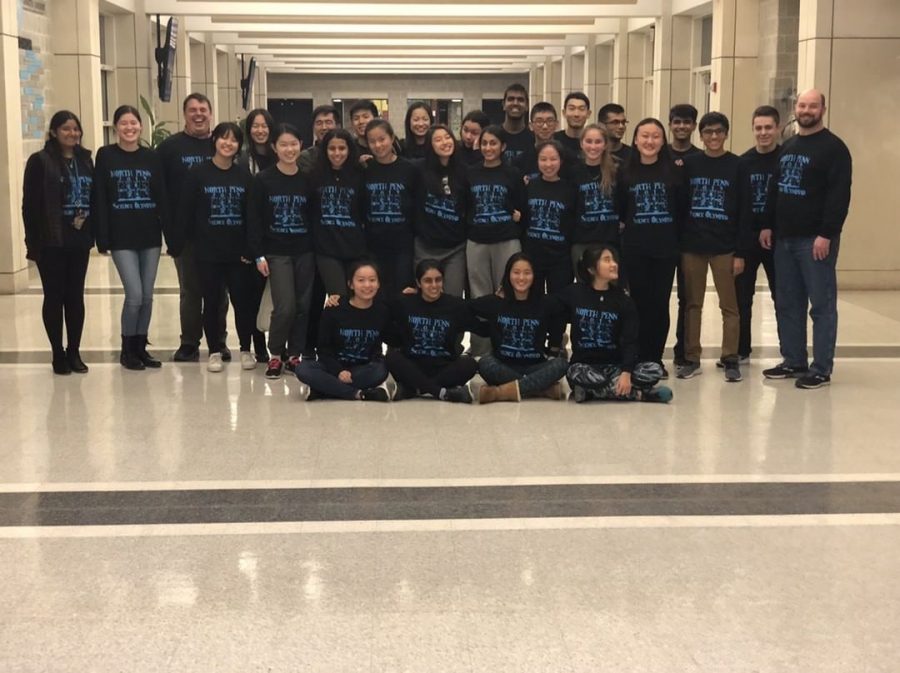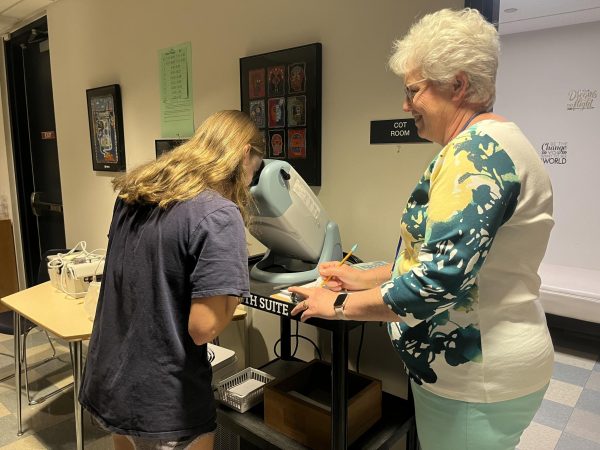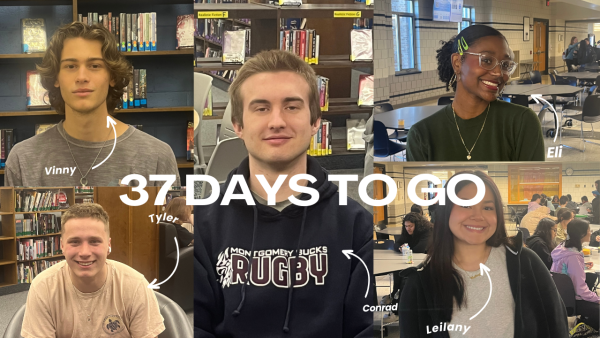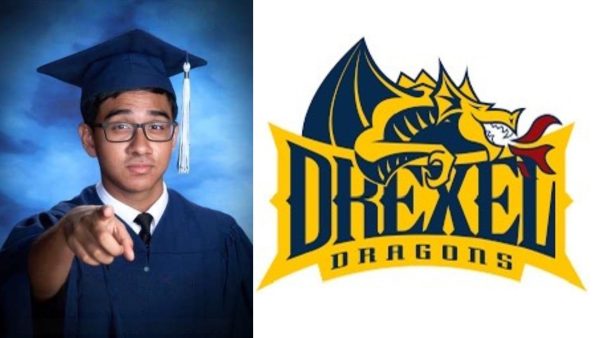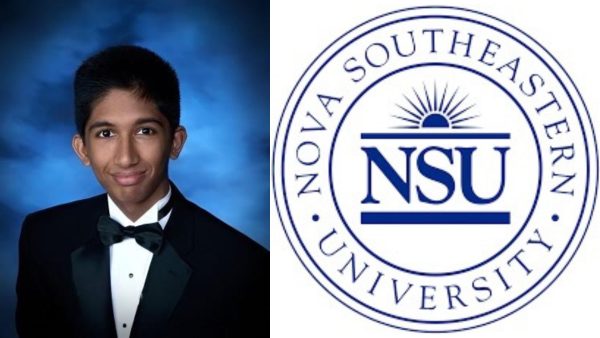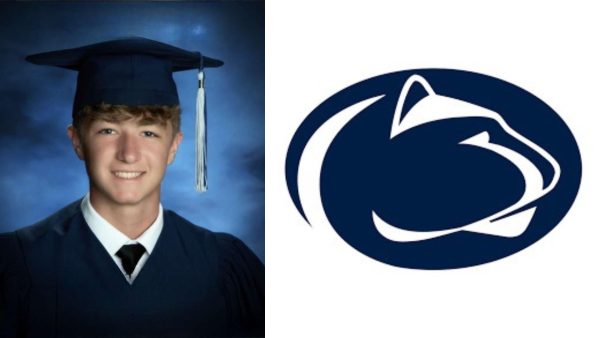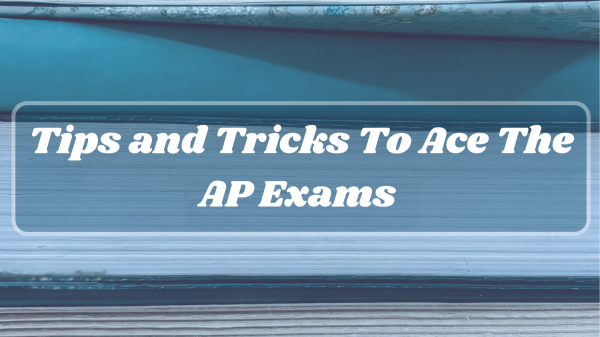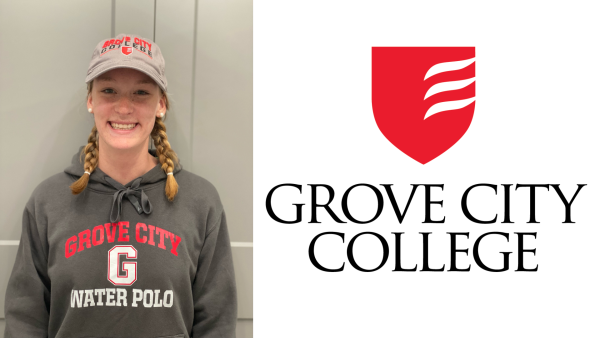Science Olympiad shares their passion at Regionals
TOWAMENCIN- Loving science is one thing but taking time after school to compete in science related events is a whole new level of passion and dedication.
Science Olympiad is competition where students compete in 23 different events that offer a platform for students to apply and display design, prototyping, technical writing, and chemistry lab skills. Students take the initiative to create and to prepare everything themselves.
“The activities a student partakes in during competition depends on what events they are doing. For example, someone in Chemistry Lab would apply lab skills in a chemistry-based lab, while someone in Wright Stuff will build a rubber-powered plane. There are 3 main groups of events: study events, lab-based events, and building events. All events require prior preparation, whether that be creating a note sheet or building a structure that will be tested at the competition. Each student competed in at least two events,” said senior Felicia Yan, Science Olympiad president.
Members of Science Olympiad who participated in regionals on February 27th were Ryan Lee, Angie Wu, Sam Lee, Rongrong Wang, Nikhil Madaka, Felicia Yan, Vinny Shankar, Ryan Forte, Shree Patel, Charis Ma, Emily Liu, Billy Wang, Kendall Kohout, Aiden Yi, and Connie Jiang. The team has been working since late September to prepare as invitationals began in January. The team placed 7th out of 37 teams.
“Regionals are basically like any other invitational we go to. Basically when we arrive, the building event people go to impound. You store your device at the testing location, making it so that you can’t modify it. Then we have six 50 min time blocks. Each event has a preassigned time. This differs from team to team, but basically all the teams are split into 3 groups by the invitational organizer and the groups rotate through,” said Yan.
The event required sign ups so members varied in how long their days were. But as for senior Felicia Yan, president of Science Olympiad, her day was long and eventful.
“At 9, I had GeoLogic Mapping, which is a binder based event…Then I went straight through from 11-2, competing in Disease Detectives, Water Quality, Designer Genes, and Mission Possible. Water Quality was similar to Disease but there is the added component of testing a prebuilt hydrometer/salinometer. They all have to be homemade, and during the time slot, we got 2 minutes to use it to determine the salinity of the solution given. Designer Genes was station based. Each station has a topic/focus so the test gets split up. When you walk in, you pick a seat and then there is an established rotation that you must follow. The proctors call time—I think it was 2 min at regionals but it varies from competition to competition—and then you have to go to the next station. The nice part about station based is that you only have so long to answer the questions on the page, which eliminates getting stuck on a question for a long period of time. Mission Possible was my only build event. Our device had a couple of the required actions along with the start and end action. Unfortunately, our device did not perform as expected… which lead to a couple of us thinking that this could hold us back from qualifying for states. Luckily it did not, giving us more time to fix the device and possibly add more actions,” Yan explained.
The team is working on getting ready for the state competition on April 27th at Juniata College.
“The prep work will stay largely the same in the sense that we will continue to use released tests to guide us. We are also hoping to continue building our team for the future. Considering the youth of our team and the strength of competition in the state, we hope for a top 10 finish at states,” said Yan.


